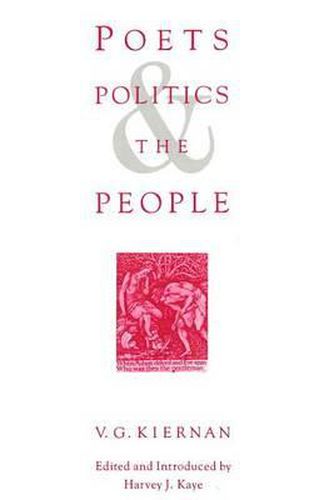Readings Newsletter
Become a Readings Member to make your shopping experience even easier.
Sign in or sign up for free!
You’re not far away from qualifying for FREE standard shipping within Australia
You’ve qualified for FREE standard shipping within Australia
The cart is loading…






Poets, Politics and the People brings together for the first time the most important writings on English literature, culture and politics by one of the leading Marxist historians of our time. The essays collected here consider the work of Shakespeare, Tennyson and Wordsworth; the relation between writers and ‘the people’ in popular protest; and the ideas which have motivated and inspired popular struggles, especially Christianity and socialism. Also include are articles in which Kiernan reflects on the ‘Cambridge traitors’ of the 1930s and the continuing obsession with ‘the enemy within’. Together, they form a ‘history from the bottom up’, reappropriating a radical democratic tradition of thought in Britain. Best known for his studies on imperialism and state formation, Kiernan in this book demonstrates a far-reaching interest in the cultural determinants of literary production, and provides a model for the study of literature in history which will be of interest to scholars of history and literature alike.
$9.00 standard shipping within Australia
FREE standard shipping within Australia for orders over $100.00
Express & International shipping calculated at checkout
Poets, Politics and the People brings together for the first time the most important writings on English literature, culture and politics by one of the leading Marxist historians of our time. The essays collected here consider the work of Shakespeare, Tennyson and Wordsworth; the relation between writers and ‘the people’ in popular protest; and the ideas which have motivated and inspired popular struggles, especially Christianity and socialism. Also include are articles in which Kiernan reflects on the ‘Cambridge traitors’ of the 1930s and the continuing obsession with ‘the enemy within’. Together, they form a ‘history from the bottom up’, reappropriating a radical democratic tradition of thought in Britain. Best known for his studies on imperialism and state formation, Kiernan in this book demonstrates a far-reaching interest in the cultural determinants of literary production, and provides a model for the study of literature in history which will be of interest to scholars of history and literature alike.